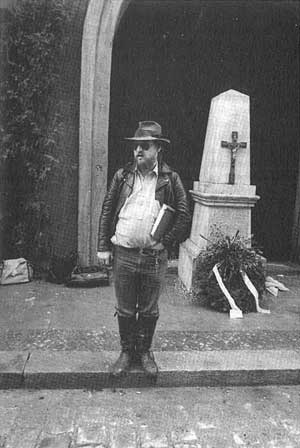Heist: A Queer Incident

Last night, I read an article called "Keeper of the Flame" in Film Comment about German, queer film-maker R.W. Fassbinder's filmic legacy. According to the article, after his death, the rights to his films were passed on to his mother. Before her death, a female editor of his films convinced his mother that she had been married to the director and denied to the mother his "drug addiction and his homosexuality (something the old woman was probably more than happy to hear) ...".
Now, control of the films belongs to this woman. And she is evidently looking to improve their commercial value. According to the article's author, she is looking
... to sanitize Fassbinder's life along middle-class, petit bourgeois lines, promoting a simplistic cult of genius from which Fassbinder's promiscuity, drug use, and excessive and obsessive work life are excised as much as possible. Moreover, close and hence 'disagreeable' Fassbinder collaborators, whose firsthand knowldge gives the lie to this whitewashing, have been carefully excluded from events and retrospectives.
Evidently, she attempted similar with another queer artist who died of AIDS but lost that case to the artists' parents.
This struck me as a strange twist on queer marriage and estate. In a world where queers can't marry, it's conceivable that marriages of monetary convenience can be fabricated after death, and not only material goods but whole legacies of cultural product can be stolen and queer history can be re-written. It could be as if queer Fassbinder never made a thing.
Art is more truly a commodity, and the maker (in this case, a queer) has very little purchase here.